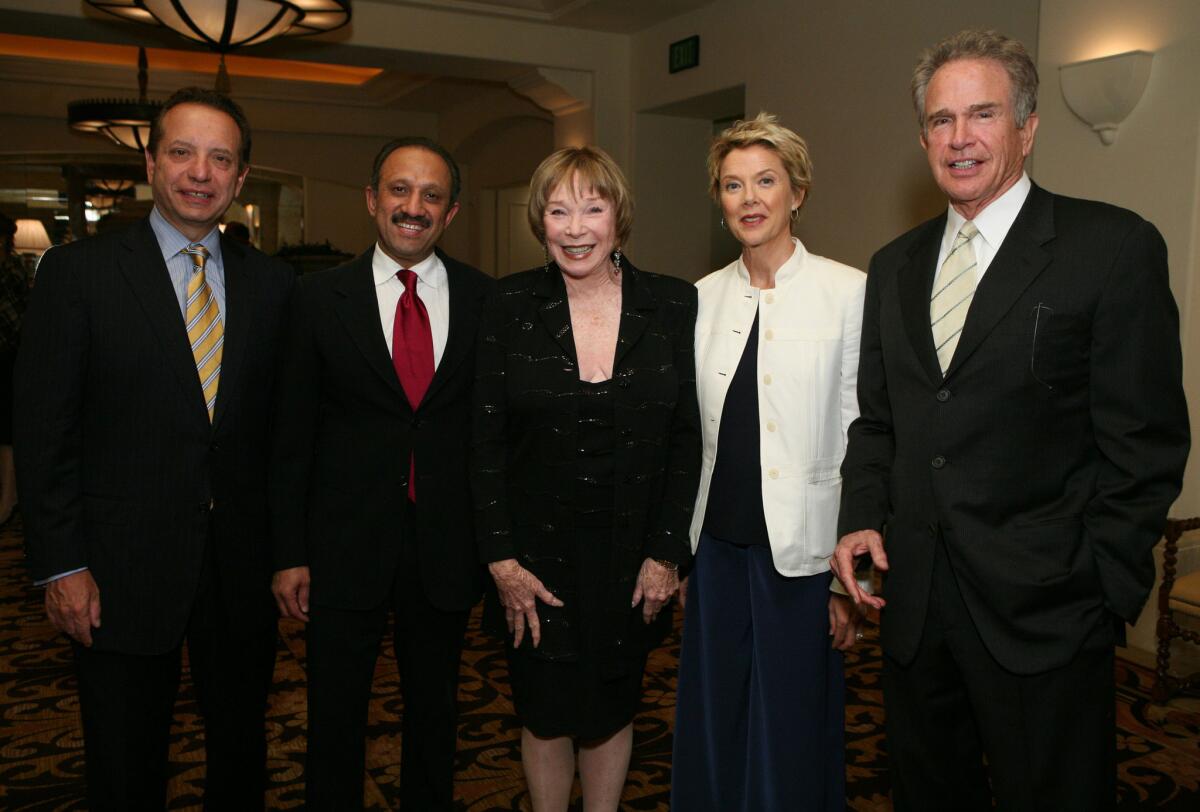USC downplays fundraising efforts of ex-dean at center of drug scandal

USC on Friday moved to further distance itself from the former dean of its medical school at the center of a scandal, downplaying Dr. Carmen Puliafito’s much-touted performance as a fundraiser for the university.
USC’s senior vice president for university advancement said in a letter to alumni and supporters that assertions that Puliafito raised more than $1 billion while leading the Keck School of Medicine were overblown and that the physician was personally responsible for collecting barely 1% of that amount over the last seven years.
A Times investigation published last month reported that Puliafito, while Keck dean, associated with a circle of drug abusers and criminals who said he often used methamphetamine and other drugs with them. He served nearly a decade as dean before abruptly resigning in March 2016.
The letter from Albert Checcio said the credit for the $1.2 billion in gifts to Keck in the last seven years is shared by many people, including individual researchers, department chairs and physicians, as well as USC President C.L. Max Nikias.
“What these gifts illustrate is that fundraising at a multifaceted research university like USC is a collaborative effort, especially in medicine, where the relationships that donors build with all members of their health care team are paramount to philanthropic support,” Checcio wrote.
“No single individual is ever responsible for — or can take sole credit for — raising the money.”
Checcio and Puliafito did not respond to interview requests.
University leaders, including Nikias, previously praised Puliafito’s prowess with donors, going back to his arrival at USC. Introducing him to the campus in 2007, then-provost Nikias, who led the search committee that selected the dean, described him as “a fundraiser of singular quality.”
When Puliafito was up for reappointment in 2012, he listed fundraising as a key accomplishment, writing in a self-assessment that he had secured $500 million in contributions in his nearly five years as dean at that point. Nikias, who had become president, decided to keep Puliafito on for a second term over the objections of some faculty and staff, who expressed concerns about what they said was brusque behavior and excessive drinking.
In a letter that year announcing Puliafito’s reappointment, provost Elizabeth Garrett said the positive feedback the university had received about him included his “involvement in USC’s historic fundraising campaign.”
Evaluations of Puliafito noted “the increase in research funding during his tenure” as a “significant” achievement, Garrett wrote.
When a biotech company hired Puliafito last year, it said in a news release that the dean was responsible for “fundraising initiatives resulting in over $1 billion in gifts and pledges” for USC. The firm, Ophthotech Corp., later laid off Puliafito and scores of other employees after reporting poor results from a drug trial.
Throughout his years as dean, Puliafito was a public face of the school’s efforts to court donors. He co-hosted Westside galas that raised money for Keck, welcoming celebrity guests such as Jay Leno and Pierce Brosnan and praising the gathered philanthropists.
Photos of these events show Puliafito posing with big-name donors like Oracle co-founder Larry Ellison, the late Paramount Pictures Chairman Brad Grey, and David and Dana Dornsife.
Puliafito stepped down as dean three weeks after a young woman suffered a drug overdose in his presence in a Pasadena hotel room. His involvement in the overdose was not publicly disclosed until The Times report on July 17.
A witness to the overdose told the newspaper of calling Nikias’ office in March 2016 to inform USC of Puliafito’s role in the incident at the Hotel Constance. After The Times investigation was published, USC administrators acknowledged having received the call, but said it was handled by two receptionists who did not pass on the witness’ account to their superiors because they did not find it credible.
Administrators also said they had received complaints from employees about Puliafito’s behavior, including two shortly before he resigned as dean. USC allowed Puliafito to remain on the Keck faculty and see patients. He also continued to represent the school at medicine-related events.
After the Times story, USC moved to fire Puliafito, forbid him to see patients and barred him from campus.
Much of Checcio’s letter Friday addressed USC’s recent successes in fundraising overall, including more than $794 million in gifts and pledges in the last fiscal year.
Laura Fredericks, a philanthropy consultant and lecturer at New York University, said it is highly unusual for a university to publicly dispute how much a key administrator raised.
Fredericks said fundraising is often a group effort.
“Having been in fundraising for 25-plus years, it’s very difficult for anyone to say who exactly raised X amount,” she said. “We all know in fundraising, there’s many people who put many balls in motion to raise gifts.”
ALSO
Pasadena police’s handling of drug overdose in USC dean’s hotel room sparks debate
Editorial: Is USC committed to transparency, or just damage control?
More to Read
Sign up for Essential California
The most important California stories and recommendations in your inbox every morning.
You may occasionally receive promotional content from the Los Angeles Times.













